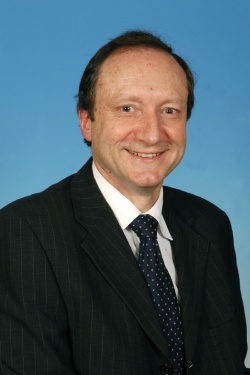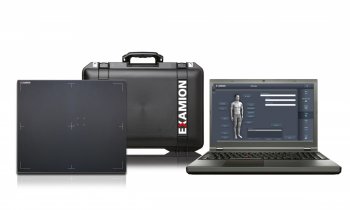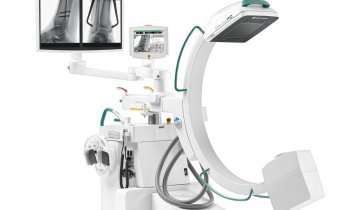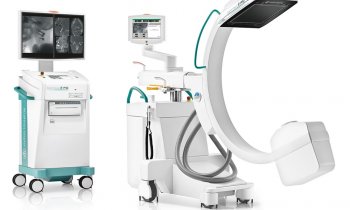Combat Trauma Innovation 2012
Medical advances learned from treating military casualties severely injured on the battlefield are helping to enhance medicine for British civilians. Mark Nicholls reports on a conference to hasten advances into the public arena.

The rise in military casualties, with British troops operating in war zones in Iraq and Afghanistan over the past decade, has facilitated significant developments in civilian medicine within the United Kingdom’s National Health Service (NHS). Those advances are set to be outlined at the Combat Trauma Innovation 2012 conference in London (17-19 January), where international guest speakers from military and civilian hospitals share best practice on how medical developments learned from battle wounds can benefit civilian health services.
An example of the partnership between military and civilian medicine in this country is in Birmingham, where the Selly Oak Hospital – now the Queen Elizabeth Hospital – has made great advances in treating British military personnel injured in Iraq and Afghanistan.
Keynote conference speaker Sir Keith Porter, Professor of Clinical Traumatology at the University of Birmingham and Consultant Trauma Surgeon at the city’s Queen Elisabeth Hospital, will particularly focus on transferring skills and technology between military and civilian healthcare in a session focused on how increasing cooperation has helped enhance patient survivability and examine the lessons learned between medical facilities at Bastion (the key UK base in the Helmand province, Afghanistan) and Birmingham.
Sir Keith said: ‘The escalating military workload to Queen Elizabeth Hospital in the course of the last decade has been a major influence in developing robust, functional and happy relationships between the military and civilian sectors. The work demand has driven arrangements for additional military personnel including clinicians (trauma & orthopaedics, plastic surgery and anaesthetics) as well as nursing and allied health professionals.
‘In addition, we have agreed policies to meet surgery requirements including additional operating lists at nights, weekends and in the daytime, and also creation of beds and, of particular relevance, intensive care beds.’
At the conference he will explain how the efficiency of the whole care chain, from pre-hospital care (by medics in the combat zone), through the medical facilities at Camp Bastion and on to Birmingham, is reflected in ‘the significant number of unexpected survivors seen in this patient cohort.’ Sir Keith: ‘Therefore, benefits to our NHS patients are enormous and we ensure that we deliver the same level of care to these patients as well as our military patients.’
Areas of improvement include resuscitation, surgical priorities, damage control principles, micro and mycological issues as well as continuity of care, including an early rehabilitation prescription.
Sir Keith will also explain how the National Institute for Health Research (NIHR) Centre for Surgical Reconstruction and Microbiology for translational research will take that work to a higher level for both military personnel and civilian casualties. ‘This will ensure that the important messages learnt within the military experience become practice within the civilian services.’
Supported by the UK’s leading healthcare agencies, including the Department of Health, Ministry of Defence - Defence Medical Services, Royal Centre for Defence Medicine, NIHR, University Hospitals Birmingham, and the London Ambulance Service, and with top international trauma experts from military and civilian services as speakers, the conference expects delegates from many countries.
Speakers also include Dame Sally C Davies, Chief Medical Officer for England and Chief Scientific Advisor; Vice Admiral Philip I Raffaelli, Surgeon General, UK MOD; Lieutenant General Charles B Green, Surgeon General, United Sates Air Force, and Dr Fionna Moore, Medical Director of the London Ambulance Service and Clinical Director for Trauma, London.
Acknowledging the priority of emergency care in the armed forces, the event director Richard Mathews pointed out that the substantial emphasis on innovation and development in technology, practices and procedures in the past decade have led to a substantial increase in patient survivability, and it is now time to ‘discover exactly how these lessons and developments can be adapted into the civilian emergency healthcare sector’.
* 18 January. Time: 9.55 am. Professor Keith Porter: Transferring Skills and Technology between Military and Civilian Healthcare.
Combat Trauma Innovation 2012
17th January -- Mass Casualty Focus Day – providing an insight into the UK’s preparations for mass casualties during a large public event, e.g. the London 2012 Olympic Games.
18th -- Pre-Hospital Day -- exploring how civil and military organisations are preparing for, and responding to emergency situations
19th -- Clinical Day -- focused on dealing with trauma patients clinically.
20.10.2011









